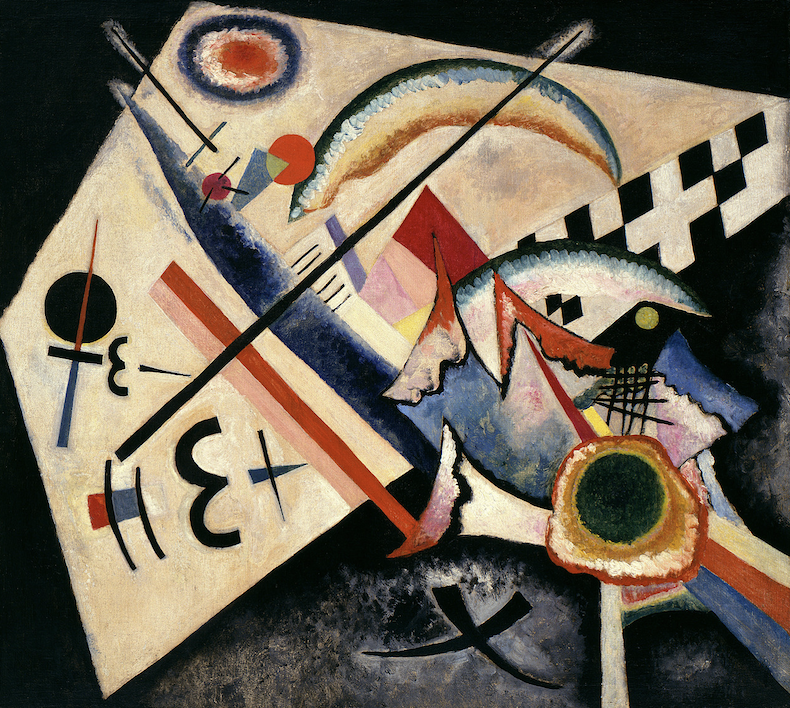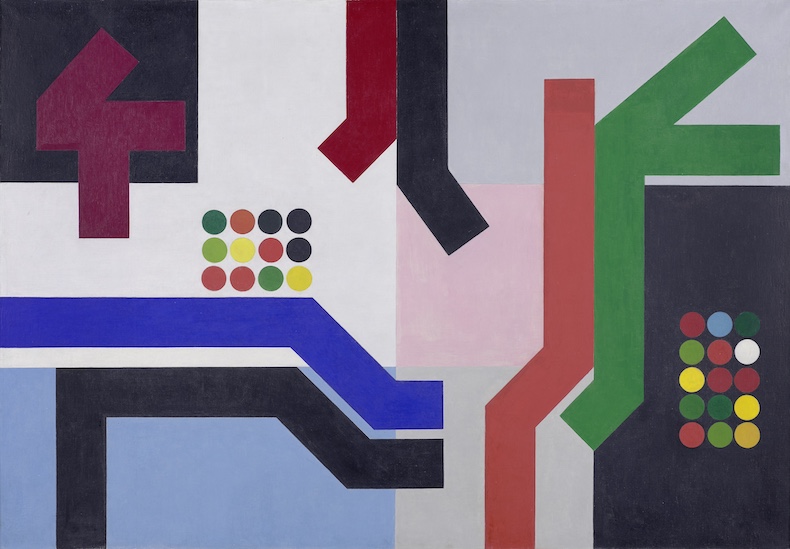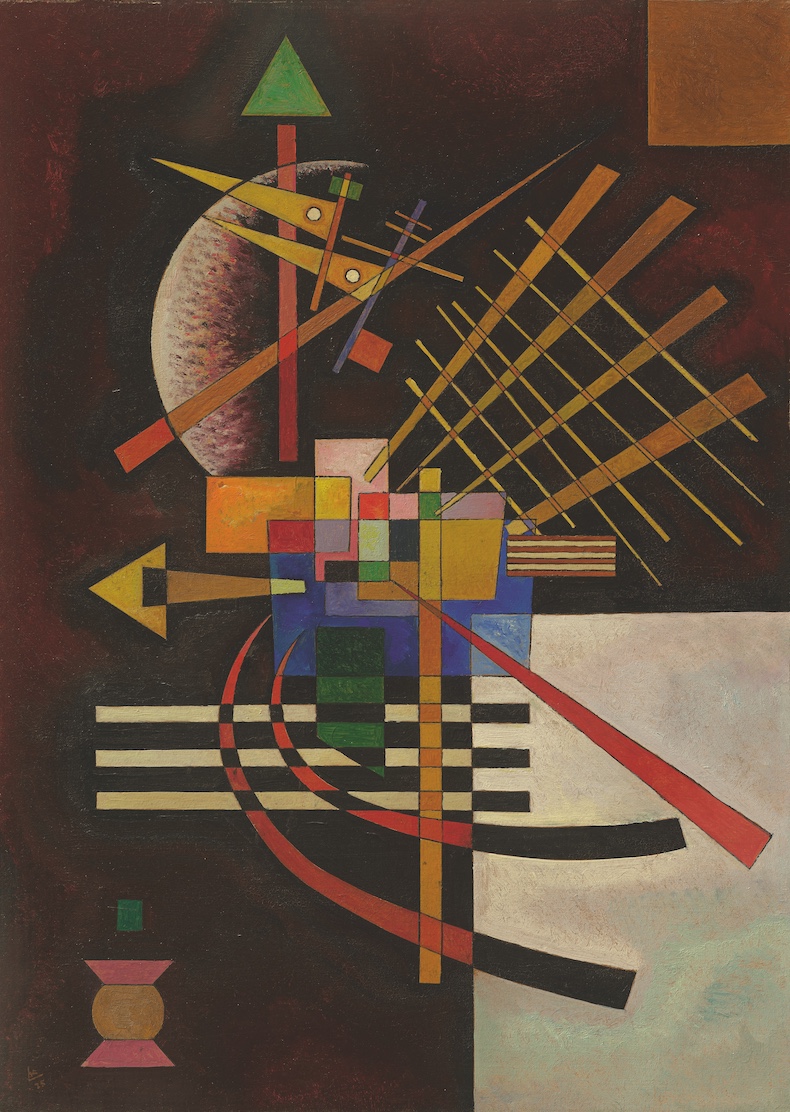This ambitious survey made up of more than 100 works – some from the Barberini’s collection and others loaned from the Courtauld, the Whitney, the Fondation Beyeler and other major institutions – situates the major starting point in the history of geometric abstraction in Kandinsky’s book Point and Line to Plane (1926), in which the artist, who was also a master at the geometrically minded Bauhaus, set forth the key principles of non-objective painting. From there, the show broadens out from Kandinsky’s own adventures in geometric painting to demonstrate how his ideas influenced artists in Europe and the United States, including Joseph Albers, El Lissitzky, Mondrian, Frank Stella, Bridget Riley and many more (15 February–18 May).
Preview below | View Apollo’s Art Diary
Find out more from the Barberini’s website
White Cross (1922), Wassily Kandinsky. Peggy Guggenheim Collection, Venice

Twelve Spaces with Planes, Angular Bands, and Laid with Circles (1939), Sophie Taeuber-Arp. Kunsthaus Zürich

Above and left (1925), Wassily Kandinsky. Private collection

Composition with Yellow and Blue (1932), Piet Mondrian. Fondation Beyeler, Riehen/Basel




